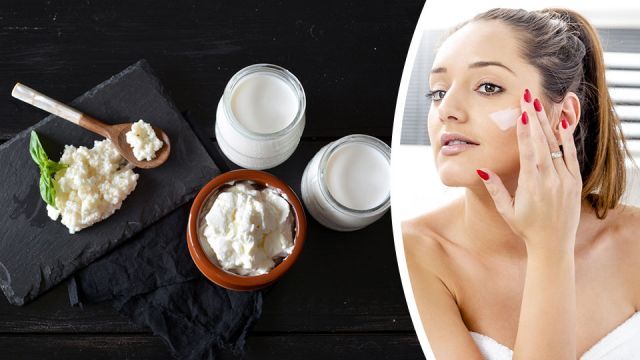
If you’re constantly battling acne, eczema, rosacea or any number of other skin disorders, the solution may be in your fridge — not your bathroom cabinet.
According to many progressive dermatologists, probiotic-rich foods like yogurt, kefir and kombucha can be even more effective in treating stubborn skin conditions than store-bought or prescription skin creams.
The importance of probiotics
By now, you’re aware of the critically important role that probiotics play in your health. Maintaining a healthy gut microbiome, for example, has been linked to improved immunity, greater insulin sensitivity, improved mental health and lower risk of autoimmune disease. Impressive stuff.
It’s no great surprise, then, to consider that there’s a strong connection between the health of your gut and that of the largest organ — your skin! Scientists have even come up with a term to describe this curious link, called the gut-brain-skin axis. This knowledge is currently driving new natural therapies for common skin disorders like acne.
A 2011 article published in the Journal of Gut Pathogens, for example, notes that “the ability of the gut microbiota and oral probiotics to influence systemic inflammation, oxidative stress, glycemic control, tissue lipid content and even mood itself, may have important implications in acne.” Another study concluded that “feeding of just the right kind of bacteria can exert profound beneficial effects on skin homoeostasis, skin inflammation, hair growth and peripheral tissue responses to perceived stress.”
With this in mind, one of the biggest steps you’ll ever take to improving the health of your skin is to establish a balanced gut microbiome. Doing so will reduce inflammation in your skin — one of the leading causes of most common skin conditions.
Probiotics for your skin — is there a more direct route?
But what if you took things a step further? What if you turned the gut-brain-skin axis into just the gut-skin axis…simply by applying probiotics directly to your face and other issue-prone areas of your skin?
It turns out that such an extreme proposition isn’t so extreme after all.
Back in 2013, researchers at UCLA took bacteria samples from 49 acne-prone and 52 healthy-skinned volunteers. They isolated over 1,000 strains of bacteria from those skin samples, from the good, the bad to the downright ugly. In this way, the skin microbiome mirrored that of the gut.
But then things got really interesting. Over the course of their testing, researchers noticed that those people with a clear complexion had significantly greater numbers of a certain bacterial strain than those volunteers prone to acne breakouts.
They noted that “this strain contains a natural defense mechanism that enables it to recognize attackers and destroy them before they infect the bacterial cell.” The team went on to note that “This P. acnes strain may protect the skin, much like yogurt’s live bacteria help defend the gut from harmful bugs.”
Other studies confirm these findings. A 2012 study, for example, found that a species of lactobacillus bacteria applied directly to the skin “…was effective in reducing skin erythema, repairing skin barrier, and reducing skin microflora, thereby exhibiting an effective reduction in acne lesion size.” Similarly, a 2009 study concluded that “the topical application of probiotics…for prophylaxis (treatment) and therapy of overwhelming cutaneous pro-inflammatory immune reactions are very promising.”
Can I just slap any old probiotic onto my face?
So is it really as simple as reaching into your fridge and smearing a dollop of yogurt on your face? Probably not. Based on the research, it appears that you need to introduce specific strains of bacteria to your face and skin in order to prevent things like acne breakouts or bouts of eczema — and chances are, these strains don’t actually live in the common probiotic foods or supplements we eat.
Luckily, there’s a range of pioneering companies out there that have jumped at this new research and now offer specifically-formulated topical probiotic products. A company called Probiotic Action, for example, offers a probiotic topical spray that’s designed to help with acne, eczema and rosacea. And they’re not the only ones — do your own research, and you’re bound to end up with a natural probiotic formulation that you can “slap” directly onto your face!
Other ways to protect your skin
Of course, that’s not the only way to guarantee happy, healthy skin. My approach has always been to support my skin from the inside by eating fresh, wholesome foods, eating plenty of fermented foods to supply my gut with beneficial bacteria, and staying well away from antibiotics.
Beyond this internal love-thy-skin approach, there are other steps you can take. Avoid drying out or abrading your skin with excessive scrubbing and use of conventional soaps (is your skin really that dirty?), don’t shower more than once a day and ensure the water isn’t too hot, and ditch conventional skin products that claim to moisturize and nourish the skin (but really just poison it and dry it out further).
Always remember: natural is best!
— Liivi Hess

